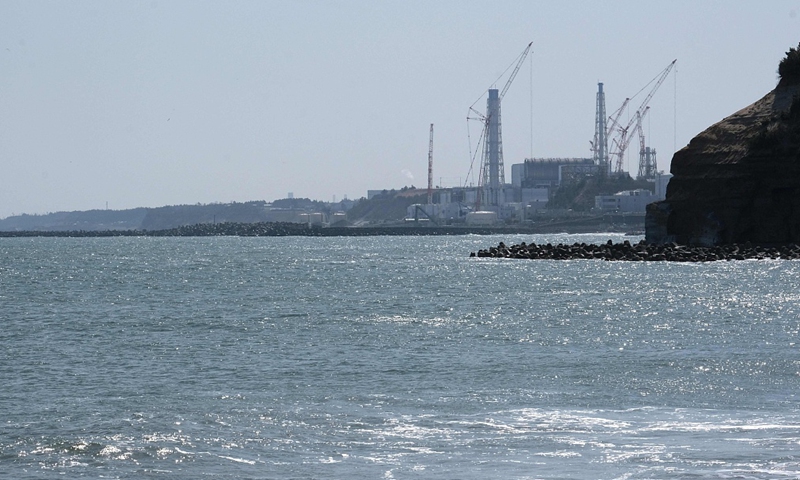
Photo:VCG
Experts on Wednesday called on more global attention on Japan's announcement to dump Fukushima nuclear-contaminated wastewater into the Pacific Ocean, saying the act "only makes the future of sustainable development even more difficult."
"It is a cost-saving measure that ignores the potential environmental harms. The radioactive elements in the nuclear effluent will affect the global marine ecological environment and bring fatal threats to the human body," said Li Huailiang, a professor and Dean of the Institute for a Community with Shared Future, Communication University of China, at a "World Earth Day" themed forum.
However, many Western governments have remained silent about such irresponsible decisions, Li said on the forum.
For example, US Secretary of State Antony Blinken even wrote on his official Twitter account on April 13 that "We thank Japan for its transparent efforts in its decision to dispose of the treated water from the Fukushima Daiichi site. We look forward to the Government of Japan's continued coordination with the International Atomic Energy Agency."
"The act by the Japanese government is a threat to the environment and runs counter to the spirit of a Community with Shared Future," Koh King Kee, director of ASEAN Research Center for A Community with Shared Future, President of Centre for New Inclusive Asia, Malaysia, said on the forum.
Three independent UN experts have expressed their deep concern over Japan's decision to dump potentially still radioactive Fukushima nuclear wastewater into the ocean, warning that it could impact millions across the Pacific region, posing potential threats to human health and the environment, Koh King Kee said.
Anthony J. Moretti, associate professor of School of Informatics, Humanities and Social Sciences Robert Morris University, also criticized Japan's decision to dump the nuclear wastewater into the ocean, "[the act] will have [an] unpredictable impact on the food chain, the ecological balance, and the health of people and future generations."
The main challenge of global environmental governance is the contradiction between the pursuits of each country for environmental sustainability and the goals for economic development, Li said.
"The existing international treaties and negotiations on environmental issues were often in response to immediate and visible environmental problems. However, the 'divide and conquer' approach breaks the linkage between issues, which may lead to contradictory provisions on the same issue and hinder the effective implementation of the treaty," Li said.
Japan should uphold a scientific attitude, face up to opposition from the international community and correct its irresponsible decision to dump radioactive water into the ocean, instead of confusing the public with pseudoscience, China's Foreign Ministry spokesperson Wang Wenbin said on April 13.
As the 52nd World Earth Day draws near, to appeal to all countries to jointly deal with the current ecological crisis, the International Academic Network for a Community with Shared Future (IAN-CSF) held a "World Earth Day" Forum with the theme of "Green, Healthy and Sustainable, Building a Community with Shared Future" on Wednesday.
An initiative was released by IAN-CSF on the forum, hoping that the international academic community will conduct research appropriate to their respective disciplines, contributing to theoretical innovation, and build a communication platform that will strengthen environmental protection and ensure sustainability in living conditions.



